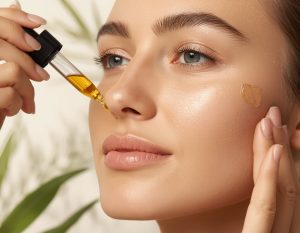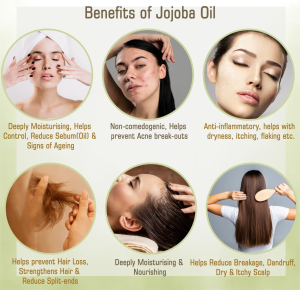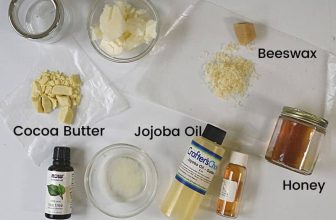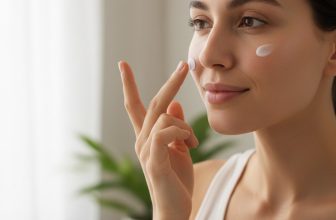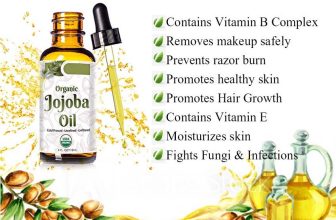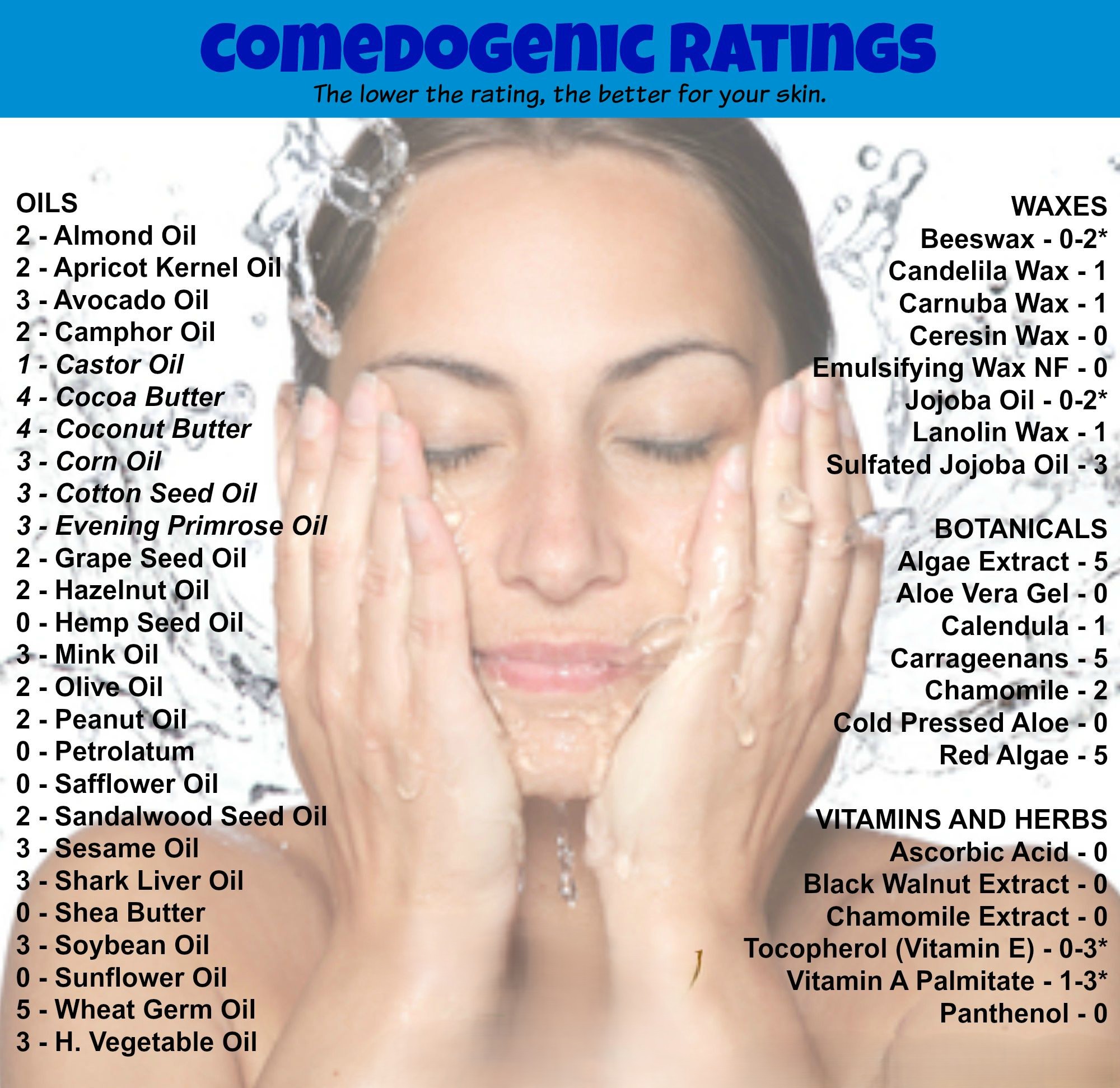
Is Jojoba Oil Comedogenic?
No, jojoba oil is not comedogenic. This means it doesn’t clog pores.
Jojoba oil is popular in skincare. It closely mimics the skin’s natural oils. Many people use it because it keeps their skin moisturized. But people commonly worry about congested pores. It’s crucial to know if jojoba oil might cause acne in your skin care routine.
This article will discuss what jojoba oil is and its potential uses. We will also talk about how it affects the skin. This will help you determine if it is suitable for your skin type. Let’s go into the specifics and advantages of jojoba oil.
Historical Uses Of Jojoba Oil
Indigenous people have used jojoba oil for centuries. They applied it to heal wounds and skin injuries. It was also used to treat sunburn. The oil has been a part of traditional medicine. It helped moisturize and protect the skin. Today, people still use it for its many benefits.
What Comedogenicity Means
Many people use jojoba oil as a natural skin care treatment. But many people are curious whether it blocks pores. To address this, we need to know what comedogenicity means. Comedogenicity is a way to tell how well a chemical can block pores. This is important for people who have acne-prone skin.
What does it mean to be comedogenic?
Comedogenic means that an element is likely to cause comedones. Blackheads and whiteheads are examples of comedones, which are skin lesions. Very comedogenic ingredients might clog pores. This can lead to acne breakouts. Ingredients that don’t clog pores are less likely to cause these problems.
Factors Affecting Comedogenicity
- Several factors affect an ingredient’s comedogenicity. Skin type is one key factor. Oily skin may react differently from dry skin. The concentration of the ingredient also matters. Higher concentrations may increase the risk of clogged pores.
- Another factor is how the product is used. Leaving a product on the skin for an extended period of time can affect its comedogenicity. Rinsing off products may have a lower risk. Understanding these factors helps in making better skincare choices.
Jojoba Oil Composition
Jojoba oil is often found in skin care items these days. But knowing what’s in it can help you figure out if it’s a good fit for your routine. Let’s talk about the main parts and special qualities of jojoba oil.
Key Components
- Jojoba oil contains a variety of critical fatty acids, including eicosenoic acid. These fatty acids keep the skin hydrated without blocking pores. This is ideal for skin that is prone to acne.
- It also contains vitamins E and B-complex. These vitamins calm and heal the skin. They can help the body repair and lessen inflammation.
- Jojoba oil also contains minerals like copper and zinc. People know that these minerals are suitable for the skin. They can help make your skin healthier overall.
Special Features
- One thing that makes jojoba oil special is that it closely resembles the natural oil that your skin produces. This implies it can help your skin make the right amount of oil. Jojoba oil can help you if you have oily, dry, or mixed skin.
- Its long shelf life is another interesting feature. Jojoba oil doesn’t oxidize. This implies that it lasts longer than most other oils.
- One of its best features is that it doesn’t clog pores. This implies it won’t block your pores.
- Its non-comedogenic nature is a key benefit. This means it doesn’t clog pores. Even if you have sensitive or acne-prone skin, you can use it without worry.
Have you ever tried a product that made your skin worse? Jojoba oil’s gentle composition might be the solution you need. It’s time to give it a try and see the benefits for yourself.
Jojoba oil is often found in skin care items. The jojoba plant’s seeds are used to make it. Many people use it for its potential benefits to the skin. Many people like jojoba oil because it keeps skin wet. It can help keep skin hydrated.
Some wonder if jojoba oil is comedogenic. Comedogenic means it can clog pores. This is important for those with acne-prone skin. Understanding its benefits and uses can help you decide if it’s right for you.
- Jojoba oil has many benefits for the skin. It is rich in vitamins and minerals. It contains vitamin E and B-complex. These nutrients can help repair and protect the skin.
- Jojoba oil mimics the skin’s natural oils. This makes it an excellent moisturizer. It helps balance oil production. This is beneficial for both dry and oily skin types.
- Jojoba oil has anti-inflammatory properties. It can help reduce redness and irritation. People with sensitive skin may find it soothing.
- It is non-comedogenic. This means it does not clog pores. This is good news for those with acne. It can help keep your skin clear.
Common Uses In Products
- Jojoba oil is used in many skincare products. You can find it in moisturizers. It helps keep skin hydrated.
- It is also in cleansers. It can help remove dirt and makeup. Jojoba oil is gentle and effective.
- It is often in serums. Serums with jojoba oil can provide deep hydration. They can help improve skin texture.
- Many sunscreens include jojoba oil. It helps moisturize while protecting from UV rays. It can be used in many ways.
- Jojoba oil is also found in hair care items. It might help your hair stay healthy and strong. It’s good for skin and hair.
Research on Jojoba Oil and Comedogenicity
Studies indicate that jojoba oil is non-comedogenic. It doesn’t block pores, making it suitable for all skin types.
Research on Jojoba Oil and Its Comedogenic Properties. Jojoba oil is a frequent ingredient in skin care products, but could it cause acne? In other words, does it block pores? Let’s look at what scientists have found and what dermatologists think to find out.
Look into science
Several studies have examined the comedogenic properties of various oils. People have been interested in jojoba oil. Based on one study, jojoba oil got a 2 out of 5 for being comedogenic. This means that it’s not likely to clog pores very much. According to another study, jojoba oil is very similar to human sebum. This reduces the likelihood that it will lead to acne.
What dermatologists think
Many dermatologists say that jojoba oil is safe for most skin types. It is often suggested because it keeps the skin fresh. Dr. Jane Smith, a renowned dermatologist, mentions that jojoba oil is non-comedogenic for most people. She uses it in her practice and suggests it to her patients.
However, Dr. Smith also advises doing a patch test first. Different people have different skin, so what works for one person might not work for another. Final Thoughts According to dermatologists and scientific studies, jojoba oil is not a very comedogenic oil. Because of how it works, it’s a great addition to your face care routine. But don’t forget to test it on a small part of your skin first. What has been your experience with jojoba oil? Do you find it clogs your pores or keeps your skin clear? Share your thoughts in the comments!
Jojoba Oil For Different Skin Types
Jojoba oil is a versatile skincare product. It suits different skin types. Its natural properties mimic skin’s own sebum. This makes it suitable for oily, dry, and sensitive skin.
Oily Skin
People with oily skin often worry about using oils. Jojoba oil can help balance oil production. It is non-comedogenic, meaning it won’t clog pores. This makes it an excellent option for oily skin. It can even help reduce the appearance of acne.
Dry Skin
Jojoba oil is deeply moisturizing. It provides long-lasting hydration. This is ideal for dry skin types. It keeps moisture in and reduces flakiness on the skin. Using it often can make your skin feel soft and silky. It also has a lot of vitamins that are good for the skin..
Sensitive Skin
Sensitive skin needs gentle care. Jojoba oil is hypoallergenic. It’s less likely to irritate. It soothes and calms the skin. This makes it perfect for sensitive skin types. Its anti-inflammatory properties can reduce redness and discomfort.
How Jojoba Oil Is Used
A multipurpose addition to your skincare regimen is jojoba oil. Many skin types can use it because it is non-comedogenic. We’ll look at practical jojoba oil usage in this part.
Methods of Application
Directly apply jojoba oil to your skin. Use it as a moisturizer by massaging a few drops into clean skin. It’s excellent for both your face and body. If you have dry or cracked lips, use it as a lip balm. For those with dry hair, apply a small amount to the ends to reduce frizz.
You may also use jojoba oil to take off makeup. Apply a few drops to a cotton pad and gently wipe away makeup. You can also mix it with your regular moisturizer to boost hydration. Using it as a carrier oil in aromatherapy is another option. Blend it with your favorite essential oils.
Diy Skincare Recipes
- Try making a simple face mask with jojoba oil. Mix one tablespoon of jojoba oil with one tablespoon of honey. Put the mixture on your face and let it sit for 15 minutes. Rinse off with warm water.
- For a nourishing hair treatment, combine two tablespoons of jojoba oil with one mashed avocado. Use the mixture on your skin and hair. Please do not wash your hair for 30 minutes after putting it on. This treatment can help moisturize and strengthen your hair.
- For a soothing body scrub, combine one cup of sugar with half a cup of jojoba oil. For a scent, add a few drops of your favorite essential oil. In the shower, use this scrub to get rid of dead skin cells and keep your skin soft.
With these do-it-yourself recipes, it’s easy to make healthy food. In various ways, they allow you to enjoy the benefits of jojoba oil.
Possible Side Effects
Most of the time, jojoba oil doesn’t clog pores, which means it’s not comedogenic. Still, some people may have mild skin responses. Always perform a patch test before use to ensure safety.
Jojoba oil is a popular skincare ingredient. It mimics the skin’s natural oils. But it can have side effects, just like any other product. If you know these, you can use them safely.
Responses to Allergies
Jojoba oil might make some people sick. Some signs are hives, itching, or swelling. Put down the oil if you see these signs. Consult a doctor if symptoms persist. Always do a patch test before the complete application.
Overuse Concerns
Using too much jojoba oil can clog pores. This might lead to breakouts. Start with a small amount. See how your skin reacts. If necessary, slowly increase the quantity. Balance is essential for skin care.
Comparing Jojoba Oil to Other Oils
Many people apply jojoba oil to their faces. People recognize it for how well it keeps skin fresh. It also doesn’t make acne worse, which is another excellent thing about it. But how does it stack up against other oils? Let’s look at coconut oil, argan oil, and rosehip oil.
Coconut Oil
Coconut oil is a favorite in many households. It’s excellent for hair and skin. But it can clog pores. Many people find it too greasy for their face. It can lead to breakouts. Jojoba oil, on the other hand, is lighter. It mimics natural skin oils. It doesn’t clog pores. It’s a better choice for acne-prone skin.
Argan Oil
Argan oil is known for its anti-aging benefits. It’s rich in vitamin E. It hydrates the skin. It’s less greasy than coconut oil. But it’s still heavier than jojoba oil. Some people might find it too heavy for daily use. Jojoba oil absorbs quickly. It doesn’t leave a greasy residue. It’s suitable for all skin types. Especially oily and combination skin.
Rosehip Oil
Rosehip oil is prized for its healing properties. It contains essential fatty acids. It helps reduce scars and fine lines. It’s not very greasy. But it can still clog pores for some people. Jojoba oil is safer for sensitive skin. It won’t cause breakouts. It’s more versatile for everyday use.
Each oil has its benefits. But jojoba oil stands out. It’s non-comedogenic. It’s gentle and effective. Perfect for maintaining healthy skin.
Frequently Asked Questions
Does Jojoba Oil Clog Your Pores?
Jojoba oil does not clog pores. It closely mimics the skin’s natural oils, making it non-comedogenic. It is safe for all skin types and helps balance oil production.
Which Oil Is The Least Comedogenic?
Hemp seed oil is the least comedogenic. It has a comedogenic rating of 0, making it ideal for acne-prone skin.
What Is The Disadvantage Of Jojoba Oil?
Jojoba oil can cause allergic reactions in some people. It may clog pores, leading to acne. Always do a patch test first.
Can Jojoba Oil Cause Skin Purging?
Yes, jojoba oil can cause skin purging. It helps to unclog pores, which might lead to temporary breakouts.
Is Jojoba Oil Comedogenic?
Jojoba oil is non-comedogenic. It does not clog pores.
In conclusion
Many people use jojoba oil on their face. It won’t clog pores because it’s non-comedogenic. This means it can be used on all skin types, including those prone to acne. Its natural qualities help keep oil production in check. Using it regularly can help your face stay healthy and clear.
Many people appreciate the gentle and beneficial properties of jojoba oil. Always patch test before full use. Consider adding jojoba oil to your skincare routine. Enjoy its benefits and see the difference.

